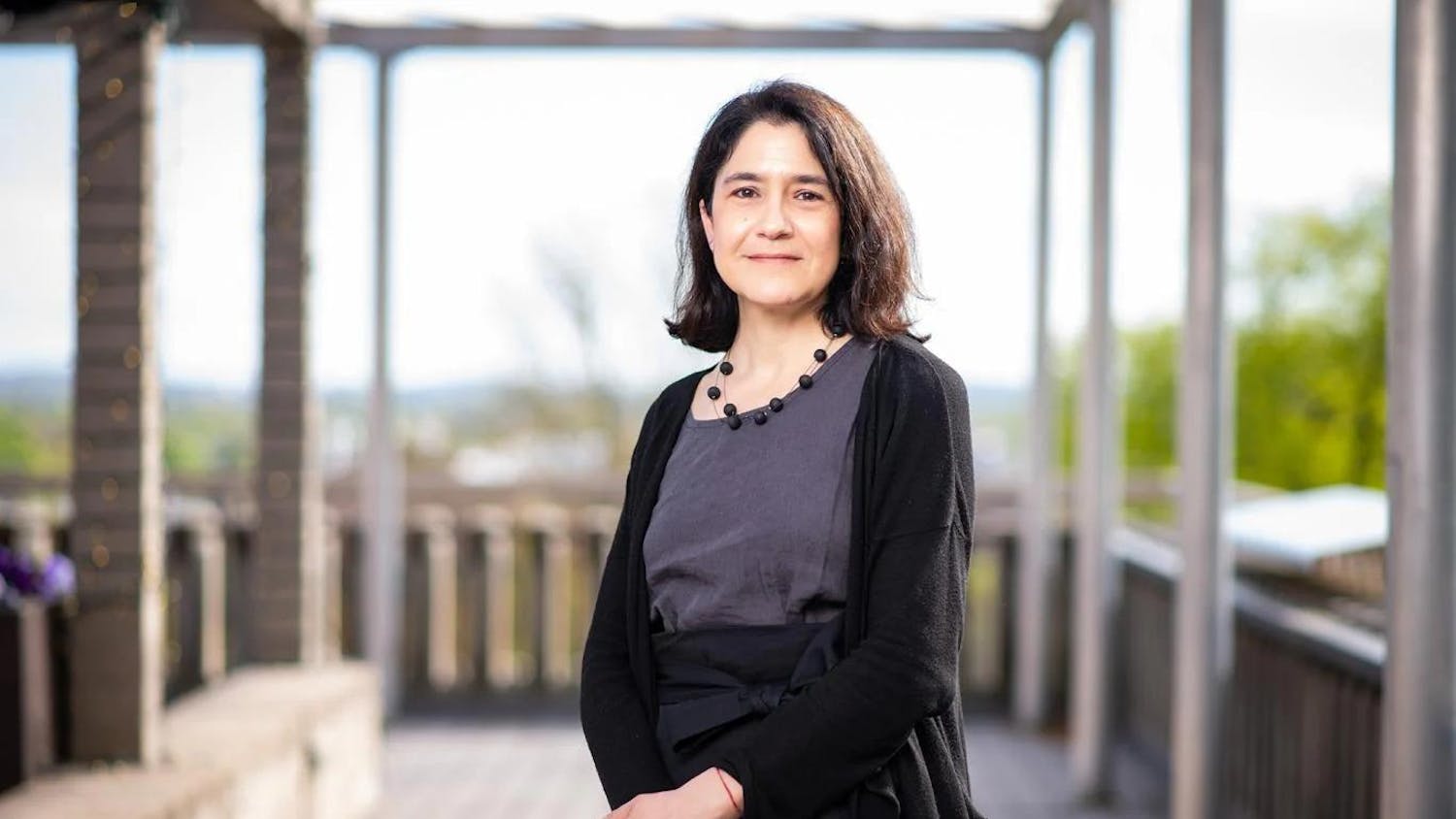The Royall House and Slave Quarters in Medford hosted Kendra Field, assistant professor of history and director of the Center for the Study of Race and Democracy at Tufts, to discuss her new book, "Growing Up with the Country: Family, Race, and Nation After the Civil War", on Wednesday evening. The Royall House was once home to Massachusetts' largest slaveholding family and is now a museum. Penny Outlaw, co-president of the Royall House Board, introduced Field.
The event took place in what Peter Gittleman, the other co-president of the Royall House Board, called the meeting room of the slave quarters' building, which is detached from the main building. A plaque in the room states that the building is the only surviving detached slave quarters in the northern United States.
Around thirty people were in attendance, including Tufts staff and members of the Royall House and Slave Quarters.
"Growing Up with the Country: Family, Race, and Nation After the Civil War" documents the lives of African Americans and Native Americans, particularly Thomas Jefferson Brown, Monroe Coleman and Alexander "Elic" Davis and their families, who migrated to settlements with both African-Americans and Native Americans in Oklahoma after the Civil War and participated in the Back-to-Africa movement in the early 1920s.
In the book, Field draws on family stories and archival research collected on research trips to Oklahoma, Mississippi and Alabama.
While writing the book, she would test the veracity of family stories against archival research, which highlighted undertones of shame and pride relating different aspects of family history, Field explained.
“I am interested in how and why certain stories were retold and remembered, and others buried,” Field said, as she read from the preface of the book.
Field said that her research unearthed "hidden transcripts" in her family history.
“The oral versions of these stories rang with pride and self-determination, while pointing to a haunting underside of worry, vulnerability and trauma they attempted to leave behind,” she said.
Field talked about Coleman’s and Davis’ reactions to the restrictions, such as Jim Crow laws and oil speculation, that African Americans faced when Oklahoma became a state in 1907. She also discussed the men’s participation in the Back-to-Africa movement and their involvement at the headquarters of the movement at the “tent city” known as South Gold Coast, Oklahoma.
The event ended with a question-and-answer session, followed by a book signing.
In an interview with the Daily, Field said that she hopes readers came away from the event with a greater understanding of the importance of storytelling.
“I heard many of the bits and pieces of these stories growing up from my grandmother, and later on I discovered that those things were not disconnected from the history I was learning in textbooks,” she said.





